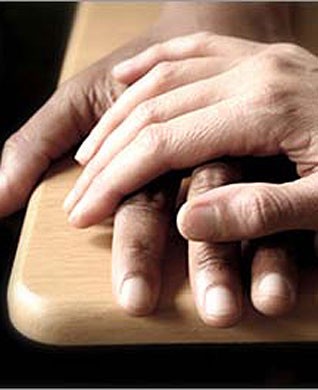Compassion
“Coaching for a Lifetime of Wellness: Five Keys to Sustainable Behavioral Change”

The theme of the 41st Annual National Wellness Conference was “Spotlight On Sustainability”. While we often think about sustainability and our environmental practices, as a wellness coach and psychologist I immediately thought of sustainable behavioral change. As I prepared for my presentation on this topic my research revealed that we actually know very little about how effective our…
12 Ways To Avoid Collusion In The Coaching Relationship

Whenever I’m training wellness coaches and use the term “collusion” a definition is required. The term can have a variety of meanings and a search done on “coaching and collusion” will yield an array of articles that seem to add to the confusion. While murder mysteries love to portray collusion as two of the bad guys conspiring to evil ends…
Astonishing Non-compliance – Understanding Grief and Readiness for Change in the Health Challenged Client

Medical noncompliance is a vast and complex issue that results in widespread human suffering and immense healthcare costs. Of the 3.8 billion pharmaceutical prescriptions written each year (USA) it is estimated that more than 50% of them are taken incorrectly or not at all. Medical noncompliance also includes failure to do medical self-care, self-testing and attend follow up appointments with…
Compassionate Detachment

January 2022! Welcome to a New Year and all of its potential. Ready to put the stresses and the tragedies of 2021 in the rearview mirror it’s a time to set intentions for a better year ahead. Hopefully you had some respite over the winter holidays and are ready to charge ahead in a positive way. Yet, the carryover, perhaps…
Compassionate Detachment: The Being and Doing of Coaching Part One

Over six thousand wellness coaches have been trained by The Real Balance Global Wellness Services that I founded. In the process of teaching these people how to become effective wellness coaches I have benefited, as all teachers do, by learning from my students. In reading over a thousand case studies, listening to hundreds of recordings, interacting in classes and hearing their…
FAVE ! First Acknowledge, Validate and Empathize.

Effective coach training teaches about the power of relationship, of person-to-person connection, not just because it’s warm and “nice”, but because all the evidence from coaching and psychotherapy says it works! We each need to feel truly heard by others that we are attempting to be in relationship with. When we share our lives, our experiences and our feelings we…
Healthy At Any Size: Coaching Weight Loss Clients To Be Fit and Healthy

The fear of adding those holiday-midwinter pounds often drives people to the bookstore for yet another dieting best-seller. The desire for quick results is understandable and nothing delivers like a low-calorie diet. The infomercials promise miracles and we keep on seeking a solution that we know sounds too good to be true. Of course those same low-calorie diets are impossible…
Keys to Coaching Clients Who Overidentify With Their Illness

We like to say that a coach listens to a person’s story and helps them to realize that they are not their story.
For the health-challenged client, their illness, conditions, or health experience is a huge part of their story. “I am a diabetic.” While this is true, how strongly does the person now see themselves through this lens? What…
Self-Deception and Living Well

Enjoying abundant good health often means having a great wellness plan for our way of living and sticking to it. Sometimes we struggle and don’t know why. The problem may be that we don’t know what we don’t know. Self-deception happens at various levels of consciousness and when it’s at its insidious worst, we don’t even realize it.
The…
The Quandary of Closeness And Compassion in Coaching

“Don’t get too close to your clients.” It may have been my junior year of being an undergraduate psychology major when a professor offhandedly gave this warning to me and a couple of other students. There is always this question about ‘therapeutic distance’. Clearly when a therapist allows their own feelings of attraction or repulsion, insensitivity or caring to interfere…
The Zone of Compassion: More Thoughts on the Heart of Coaching

How do we allow ourselves to enter the zone of compassion, and what holds us back from going there? How do we keep our “coherent sense of self” that Erik Erikson talked about intact when we connect with the ‘other’? (Allow me to use the term ‘other’ to refer to a person or persons, clients, or otherwise throughout this piece.).
…Universal Introspection: From Tucson to Trust and Compassion

The January 8, 2011 tragedy in Tucson, Arizona shocked the world and stimulated a discussion about how we do, in fact, discuss things. It is the “how” more than the “what” that we have realized bears critical examination. Country-wide introspection has caused us to ask: how did we get to this point of intolerance of disparate views, to an age…







